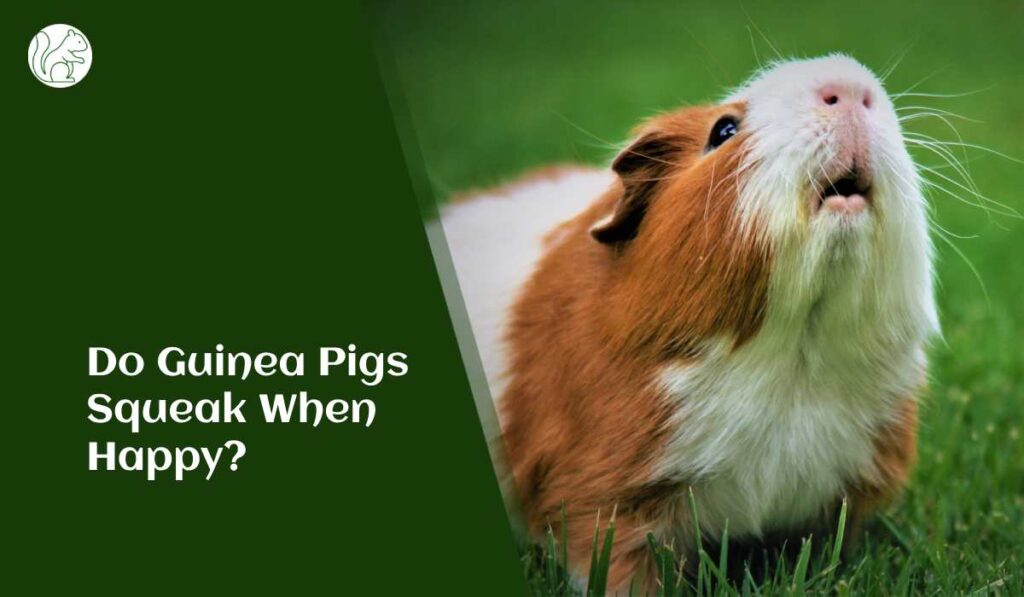Guinea pigs, also known as cavies, are adorable and sociable pets that can bring joy to any household. As a guinea pig owner, you may have noticed that these little critters make a variety of sounds. One of the most common questions among guinea pig enthusiasts is whether they squeak when they are happy. In this article, we will explore the different sounds guinea pigs make and decipher if squeaking is indeed a sign of happiness in these furry companions.

Understanding Guinea Pig Vocalizations
Guinea pigs communicate through a range of vocalizations and body language. These sounds can convey various messages, including emotions, needs, and warnings. By understanding their vocal cues, you can develop a deeper bond with your guinea pig and better respond to their needs.
Common Guinea Pig Sounds
- Squeaking: Guinea pigs are known for their high-pitched squeaks, which can serve different purposes. While it is commonly associated with excitement or happiness, it is important to note that squeaking alone does not necessarily indicate happiness. Guinea pigs may also squeak when they are hungry, seeking attention, or experiencing discomfort.
- Purring: Similar to cats, guinea pigs can purr when they are content and relaxed. This soft vibrating sound often accompanies gentle petting or when they are enjoying a cozy and comfortable environment.
- Whistling: Guinea pigs may emit a whistling sound, which is typically an indication of alarm or fear. If your guinea pig feels threatened or senses danger, they may produce a high-pitched whistle to alert their companions or warn potential predators.
- Chirping: Sometimes, guinea pigs make a series of short, bird-like chirping sounds. This behavior is often observed during play or when they are exploring their surroundings. It is believed to be an expression of excitement and curiosity.
- Teeth Chattering: If you hear a rapid, clacking noise coming from your guinea pig, it means they are displaying aggression or are feeling territorial. Teeth chattering is their way of warning others to back off.
Deciphering Guinea Pig Happiness
While squeaking can be a positive sign, it is crucial to consider other factors to determine if your guinea pig is genuinely happy. Here are a few indicators to assess their overall well-being:

- Social Behavior: Guinea pigs are social animals, and they thrive in the company of their own kind. If your guinea pig is living with a compatible cage mate and engages in playful interactions, it is likely an indication of their happiness.
- Appetite: A healthy guinea pig will have a good appetite and enjoy their regular meals. If your furry friend eagerly approaches their food, munches on hay, and maintains a stable weight, it suggests they are content and in good health.
- Exploration and Play: Happy guinea pigs are curious and love to explore their surroundings. They may dart around their enclosure, investigate toys, or engage in playful activities such as popcorning—jumping with joy while twisting their bodies.
- Relaxed Posture: Observing your guinea pig’s body language can provide valuable insights into their emotional state. When they are happy and at ease, they tend to have a relaxed posture, with their bodies stretched out and their fur smooth.
Conclusion
While squeaking is often associated with happiness in guinea pigs, it is important to consider the context and other behavioral cues to accurately gauge their emotional state. Guinea pigs use a combination of vocalizations, body language, and interactions to express their needs and emotions. By paying attention to these signals and providing a nurturing environment, you can ensure the well-being and happiness of your beloved guinea pig companions.
Remember, understanding your guinea pig’s individual personality and needs is essential for a strong bond and a happy life together. So enjoy the adorable squeaks and unique sounds of your guinea pigs, and cherish the special moments you share with them!
